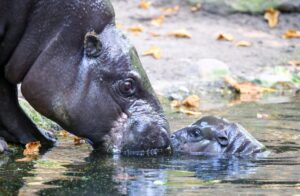Normally the world’s advertising and PR industry gathers in the south of France at this time of year for the Cannes Lions festival of creativity. This year’s event, which took place a week ago, was virtual instead of in-person.
Last year’s festival was cancelled – and one could argue that the environment will benefit from two years without global marketing executives flying to Cannes to discuss the latest trends in campaigning and communications.
It’s ironic therefore that one of the key trends emerging from this year’s festival was the big return of the environmental drive.
A few years ago many of the winning campaigns at Cannes Lions focused on sustainability, for example “The Trash Isles” from entertainment website LADbible, which won two grands prix in 2018 for highlighting the problem of plastic in oceans.
Since then environmental campaigning has tended to take second place to social issues such as gender and diversity. Indeed, action group Extinction Rebellion disrupted the event in 2019, accusing big business of hypocrisy and “greenwashing”’.
But this year there were, once again, some notable winners on the sustainability side.
There was a brilliant push by tourism body House of Lapland to highlight the threat of climate change on Salla, Finland’s coldest place. This took the form of a mock bid for the town to host the 2032 summer Olympics (by when it would surely be warm enough to do so).
“Salla 2032”, somewhat bizarrely, won a grand prix in Entertainment for Sport but it did get its message across to the world.
On the corporate side, brewing group AB InBev won the PR award for “Contract for Change’ under its Michelob brand, which encouraged farmers to adopt organic practices by providing subsidies and guaranteeing it would buy the barley, hops and other crops within three years of the transition.
There were also grands prix in the Health and For Good categories for environmental campaigns from the UK’s Central Office of Public Interest and fast-food chain Burger King respectively.
There will be more focus on campaigning in this area for 2021/22 as brands, politicians and pressure groups build up to the UN Climate Change conference, COP26, in Glasgow in November.
Media and public interest around sustainability will again be intense but so too will accusations of greenwashing for any firm lacking authenticity.




